RECOMMENDED VIDEOS

Introduction of Times-Lite Electrical Engineering Sdn Bhd
Times-Lite Electrical Engineering Sdn Bhd

Rainwater collection system design and installation services
Innovative Water Solutions LLC

Lutron Eco-Dim: Television Commercial
Lutron Electronics Co Inc

Jiangsu Jiasheng Photovoltaic Technology : Solar Module…
Jiangsu Jiasheng Photovoltaic Technology Co., Ltd

Phono Solar Technology : Solar Energy System Provider
Phono Solar Technology Co.,Ltd. (Sumex Hardware & Tools Co.,Ltd)
Related Stories
The largest solar farm apiary in the US opens this week
The City of London will be powered with 100% renewable energy by October 2018
New study suggests that plastic waste may be transformed into usable energy
Uravu’s zero-electricity Aqua Panels produce gallons of water from thin air
104% of Portugal’s electricity consumption in March came from renewable energy
21 Oct, 2017
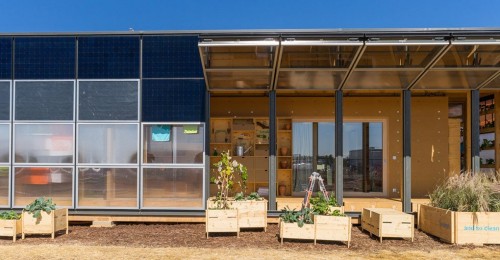
Transformable solar building changes shape to teach people how to live sustainably
Renewable Energy & Energy Efficiency | SWITZERLAND | 10 Oct, 2017
Published by : Eco Media Asia
How do you persuade people to adopt sustainable lifestyles? A team of Swiss architecture students believes in the power of demonstration—and they’ve designed and built the eco-friendly NeighborHub to prove their point. Conceived as a collaborative community space, the NeighborHub is a transformable, shared space that demonstrates innovative solutions, from renewable energy and water management to biodiversity and sustainable mobility.
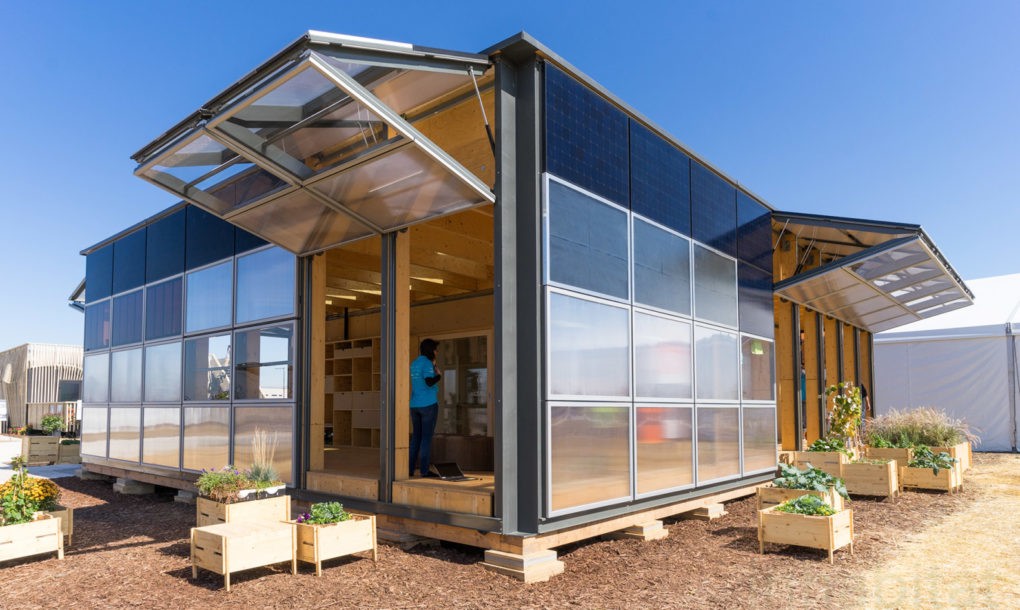
The NeighborHub is a community space that provides innovation solutions to the challenges of climate change and resource depletion. The building explores seven themes—renewable energy, water management, waste management, mobility, food, material choices, and biodiversity—within a transformable shell built of laminated veneer lumber. “The house is divided into two main spaces,” said the Swiss Team. “The center of the NeighborHub, the core, is a thermally controlled space. It is surrounded by the extended skin which is controlled by passive strategies.” The modular, prefabricated building envelope can adapt to different needs, from a private bedroom to a bicycle repair shop, and even expand its footprint to the outdoors thanks to movable walls and transforming furniture.
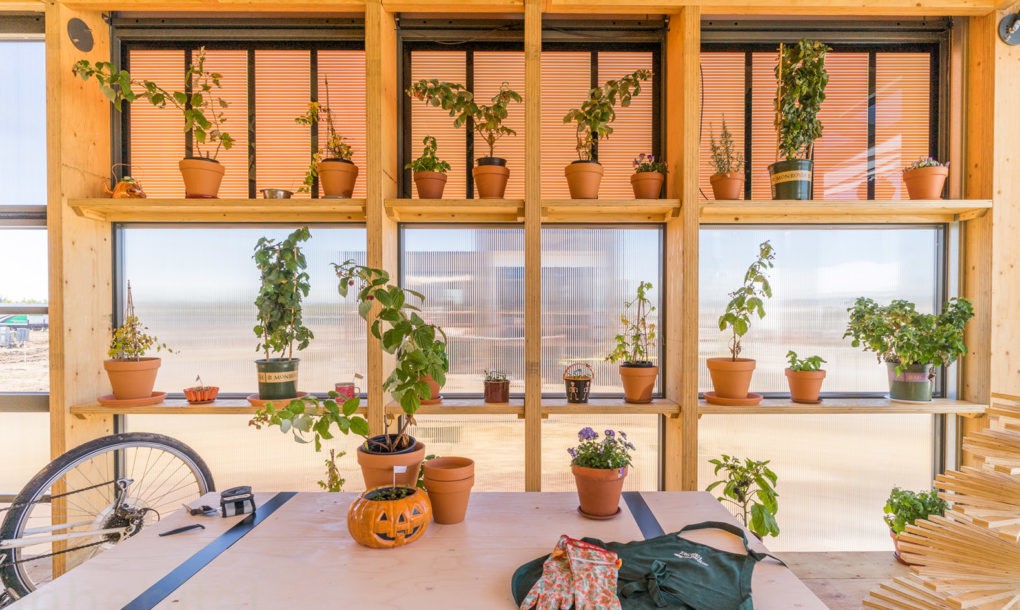
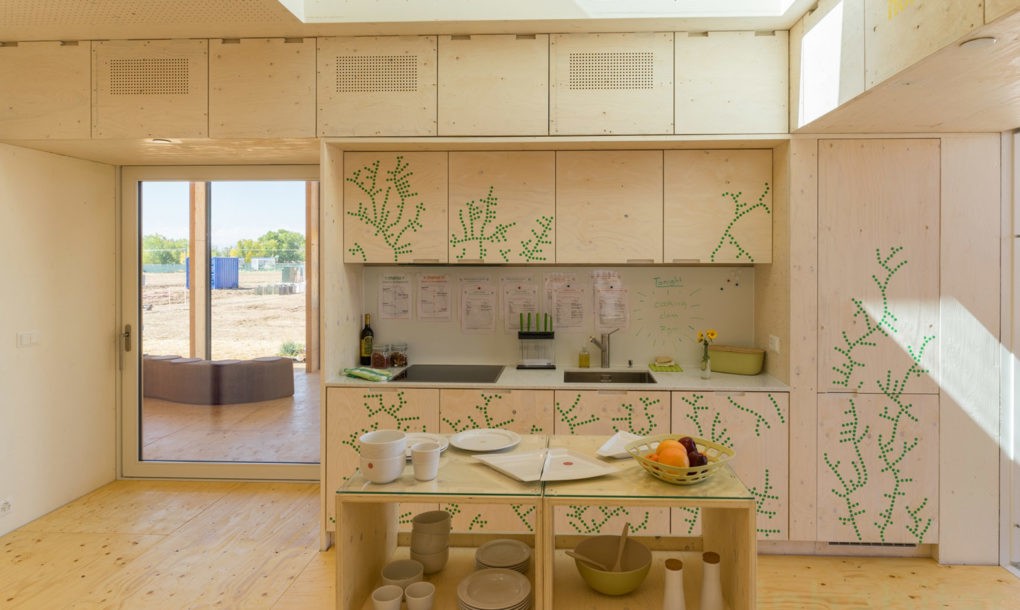
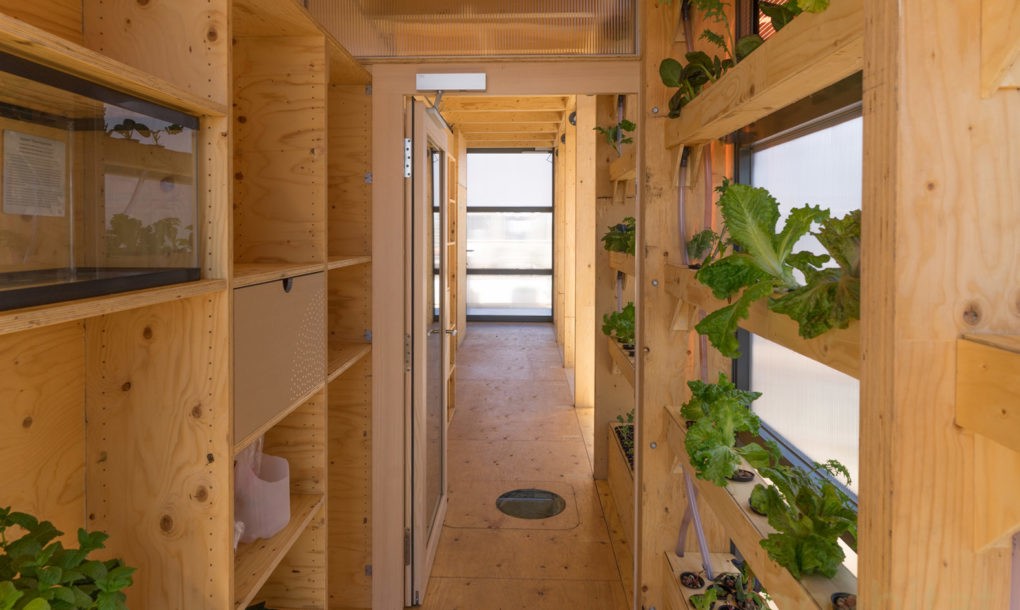
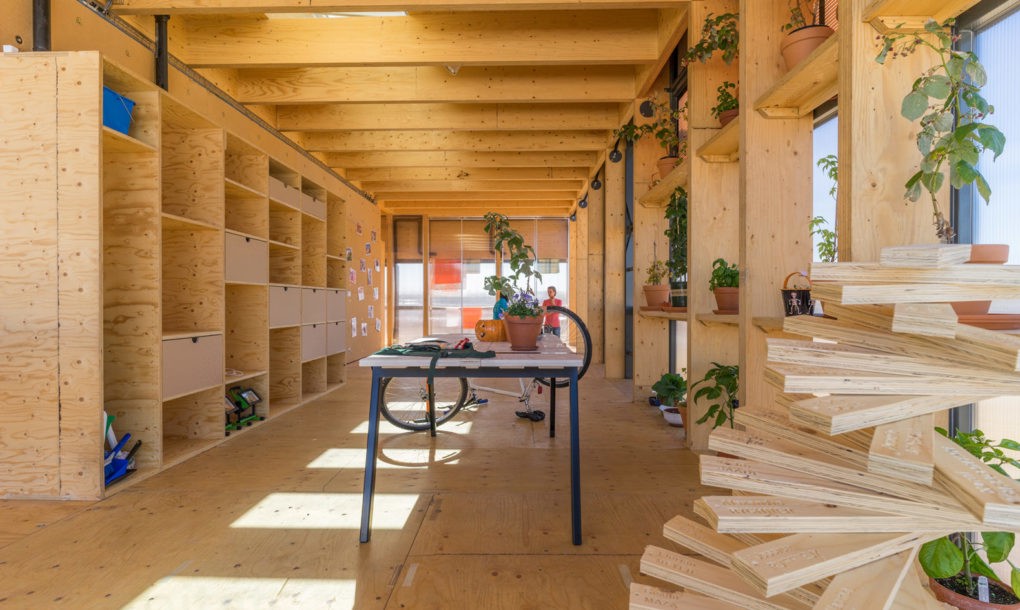
The NeighborHub’s movable facade is clad in active solar panels and solar thermal panels on the east, south, and west sides. An edible garden grows atop the rainwater-harvesting roof. Two vertical greenhouses are installed to show off space-saving year-round farming techniques such as aquaponics. A zero-water “dry” toilet recycles waste and produces compost that can be used as fertilizer. The rainwater collected from the roof is treated with an on-site phytopurication system and reused for non-potable uses, such as laundry and irrigation.
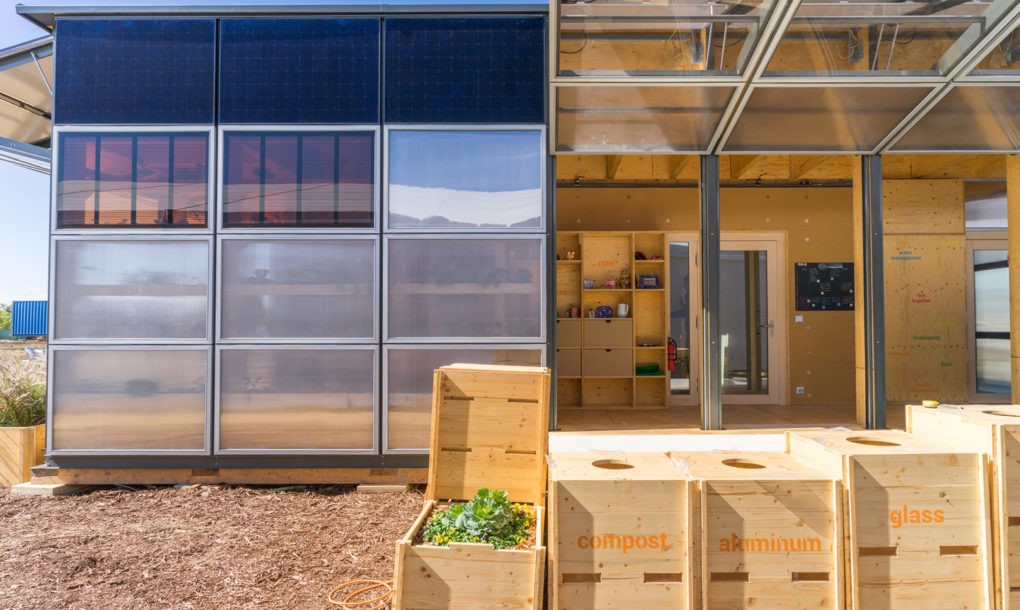
The NeighborHub was designed and constructed by the Swiss Team, comprising students from the Ecole Polytechnique Fédérale de Lausanne (EPFL), the School of Engineering and Architecture of Fribourg (HEIA-FR), the Geneva School of Art and Design (HEAD) and the University of Fribourg (UNIFR). The Swiss Team’s solar prototype was developed for the U.S. Department of Energy Solar Decathlon, an academic competition that challenges student teams to design and build full-size solar-powered homes; this year’s contest is held near Denver, Colorado. Following the competition, the NeighborHub will be brought back to the blueFactory in Fribourg, Switzerland for further research and development.
Article from inhabitat.com
by Lucy Wang
